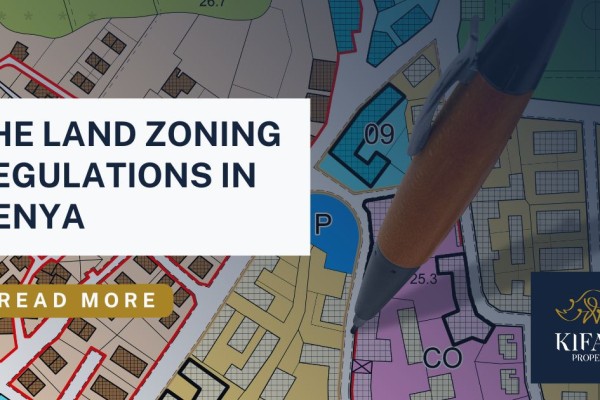- Jul 18, 2024
- Kifaru Meadows
- 299

1. Location:
The location of the land is perhaps the most critical factor to consider. Evaluate factors such as proximity to essential amenities like schools, hospitals, shopping centers, and transportation hubs. Additionally, consider the neighborhood's infrastructure, accessibility, and potential for future development.
2. Zoning and Land Use Regulations:
Before purchasing land, familiarize yourself with the local zoning regulations and land use restrictions. Determine if the property is zoned for your intended use, whether it's residential, commercial, agricultural, or mixed-use. Be aware of any limitations or regulations that may affect your plans for the land.
3. Accessibility and Transportation:
Consider the accessibility of the land and its proximity to major roads, highways, and public transportation options. Easy access is essential for both personal convenience and potential future resale value. Evaluate the transportation infrastructure in the area and its impact on commuting and logistics.
4. Natural Features and Terrain:
Assess the natural features and terrain of the land, including its topography, soil quality, drainage patterns, and any water bodies or environmental features. These factors can influence the suitability of the land for various uses, such as agriculture, construction, or conservation.
5. Environmental Considerations:
Be mindful of environmental factors that may affect the land, such as flood zones, wetlands, or protected habitats. Conduct environmental assessments and studies to identify any potential risks or liabilities associated with the property. Ensure compliance with environmental regulations and mitigation measures if necessary.
6. Land Size and Shape:
Evaluate the size and shape of the land to determine if it meets your requirements and preferences. Consider factors such as acreage, dimensions, and configuration, as well as any irregularities or constraints that may impact development or usability.
7. Utilities and Services:
Check the availability and accessibility of essential utilities and services, including water supply, electricity, sewage systems, and internet connectivity. Ensure that the land has access to reliable utility infrastructure to support your intended use and development plans.
8. Legal and Title Considerations:
Verify the legal status and ownership of the land by conducting thorough due diligence, including title searches, land surveys, and boundary assessments. Confirm that the seller has clear and marketable title to the property and that there are no encumbrances, liens, or disputes that could affect the transaction.
9. Future Development Potential:
Assess the potential for future development and appreciation of the land's value. Consider factors such as urban growth trends, infrastructure projects, and zoning changes that may impact the area's growth and demand for land.
10. Financial Considerations:
Finally, evaluate the financial aspects of the land purchase, including the purchase price, financing options, taxes, insurance, and ongoing maintenance costs. Calculate your budget and assess the financial feasibility of the investment based on your long-term goals and objectives.
In conclusion, buying land requires thorough research, careful evaluation, and informed decision-making to ensure a successful and profitable investment. By considering these key factors and seeking professional guidance when needed, you can make an informed decision and acquire land that meets your needs and aspirations.




